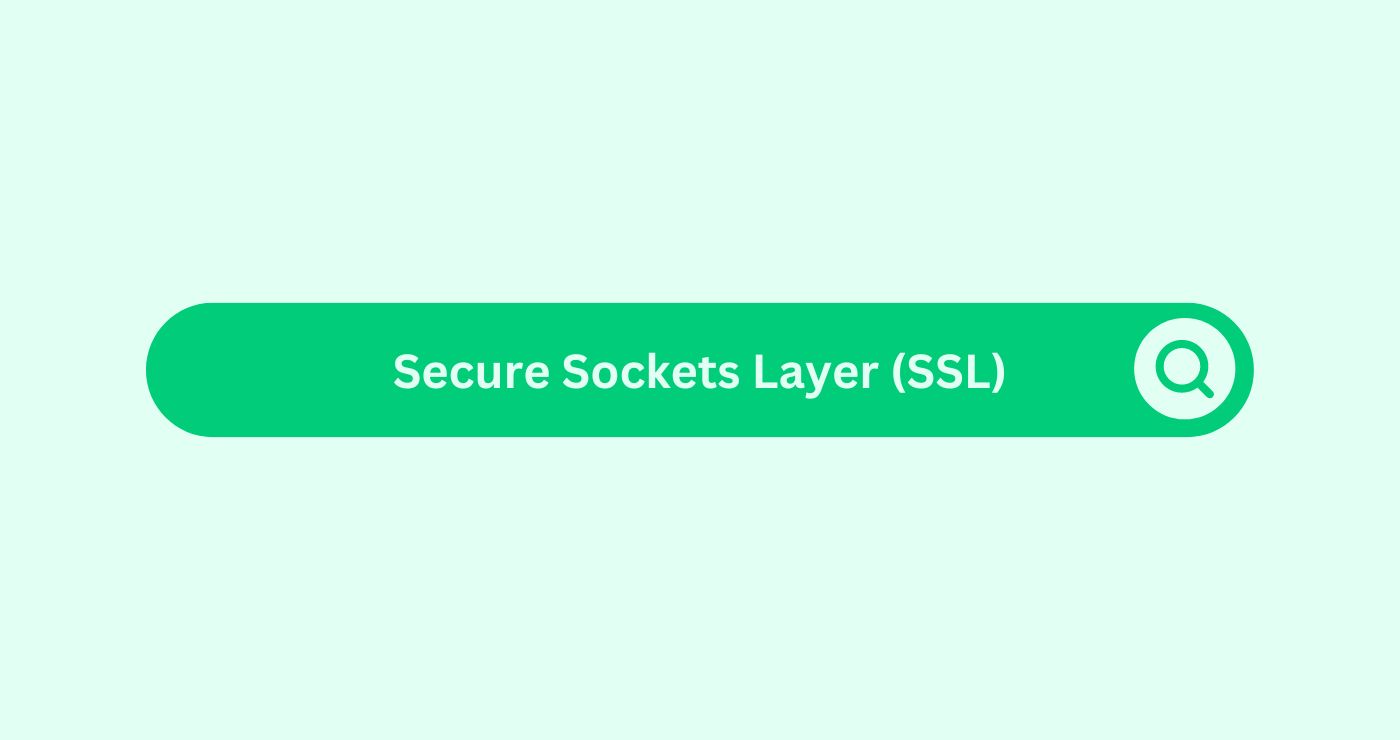Definition
Secure Sockets Layer (SSL) is a cryptographic protocol designed to establish secure, encrypted connections between web browsers and servers. In web development, SSL ensures that data transmitted between a user’s browserDefinition A browser is a software application used to acces... and the web serverDefinition A Server in the SEO space refers to a computer sy... remains private and protected from eavesdroppers or malicious attackers. By encrypting sensitive data like login credentials, payment information, and personal details, SSL provides a vital layer of security for websites.
In the SEO space, SSL plays a critical role in building trust with both users and search engines. Websites using SSL certificates are marked with “https://” in the URL, which signals that the site is secure. Major search engines, including Google, consider SSL a ranking factor, meaning websites with SSL certificates are more likely to rank higher in search results. For instance, a digital marketing agency in Auckland must implement SSL to ensure secure communication between clients and their servers, ultimately enhancing SEO performance.
how you can use
For instance, an e-commerce website can implement SSL to encrypt customer data such as personal information, credit card details, and login credentials during online transactions. This prevents unauthorized access and interception of sensitive data by malicious third parties, enhancing trust and security for users.
Key Takeaways
- Data Encryption: SSL encrypts data exchanged between a web serverDefinition A Server in the SEO space refers to a computer sy... and a client browserDefinition A browser is a software application used to acces..., ensuring that sensitive information remains confidential and secure during transmission.
- Identity Verification: SSL certificates enable serverDefinition A Server in the SEO space refers to a computer sy... authentication, allowing clients to verify the legitimacy and identity of the website they are interacting with, thereby mitigating the risk of phishing attacks and fraudulent websites.
- Trust and Credibility: Websites with SSL encryption display a padlock icon and use HTTPS in their URLs, signaling to users that their connection is secure. This enhances trust and credibility, leading to improved user confidence and engagementDefinition Engagement in content marketing refers to the deg....
- SEO Benefits: Search engines prioritize websites with SSL certificates in search results, as they provide a safer browsing experience for users. Implementing SSL can therefore positively impact website visibility and search engine rankings.
- Regulatory Compliance: Compliance with data protection regulations such as GDPR, CCPA, and PCI DSS often requires the use of SSL encryption to safeguard user privacy and prevent data breaches, avoiding potential legal consequences and penalties.
FAQs
What is the purpose of SSL certificates?
SSL certificates are digital certificates that authenticate the identity of a website and enable secure communication between the serverDefinition A Server in the SEO space refers to a computer sy... and client browserDefinition A browser is a software application used to acces... by encrypting data transmitted over the internet.
How does SSL encryption work?
SSL encryption uses asymmetric cryptography to establish a secure connection between the serverDefinition A Server in the SEO space refers to a computer sy... and client. This involves exchanging public and private keys to encrypt and decrypt data transmitted over the network.
What is the difference between SSL and TLS?
SSL (Secure Sockets Layer) and TLS (Transport Layer Security) are cryptographic protocols that serve the same purpose of securing internet communication. TLS is the successor to SSL and offers improved security and performance enhancements.
Do all websites need SSL certificates?
While not mandatory, SSL certificates are highly recommended for all websites, especially those that handle sensitive information such as personal data, financial transactions, or login credentials. SSL encryption helps protect user privacy and enhance security.
How can I obtain an SSL certificate for my website?
SSL certificates can be obtained from trusted Certificate Authorities (CAs) or through web hostingDefinition Hosting refers to the process of making your webs... providers. There are various types of SSL certificates available, including domain validated (DV), organization validated (OV), and extended validation (EV) certificates.
Can SSL certificates expire?
Yes, SSL certificates have expiration dates and need to be renewed periodically to ensure continued security. Expired SSL certificates can result in browserDefinition A browser is a software application used to acces... warnings and loss of trust from users.
Does SSL encryption impact website performance?
While SSL encryption may introduce a slight overhead due to the encryption and decryption process, modern SSL/TLS protocols and hardware optimizations minimize performance impacts. The security benefits outweigh any potential performance concerns.
Are there any SEO penalties for not using SSL?
While search engines do not penalize websites for not using SSL, they may prioritize secure websites in search results to promote a safer browsing experience for users. Implementing SSL can therefore indirectly impact SEO rankings and visibility.
What is mixed content, and how does it affect SSL?
Mixed content occurs when a secure HTTPS page contains insecure HTTP resources such as images, scripts, or stylesheets. This can trigger browserDefinition A browser is a software application used to acces... warnings and compromise the security of the SSL connection. It is essential to resolve mixed content issues for optimal SSL protection.
Can SSL be bypassed or compromised by hackers?
While SSL encryption provides robust security, it is not immune to vulnerabilities or attacks. Common SSL vulnerabilities include protocol downgrade attacks, certificate misconfigurations, and implementation flaws. Regular updates and security best practices help mitigate these risks.




